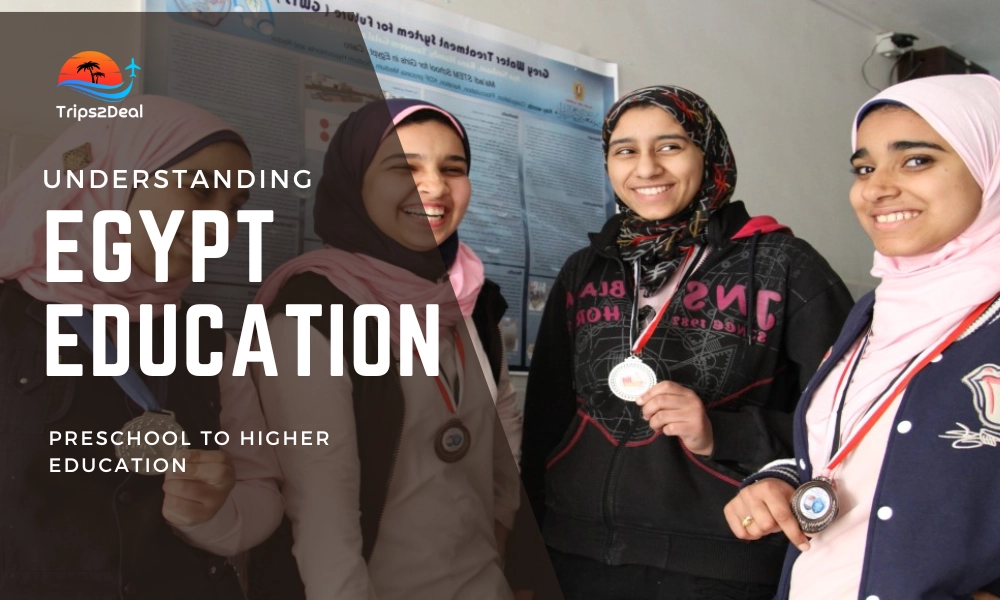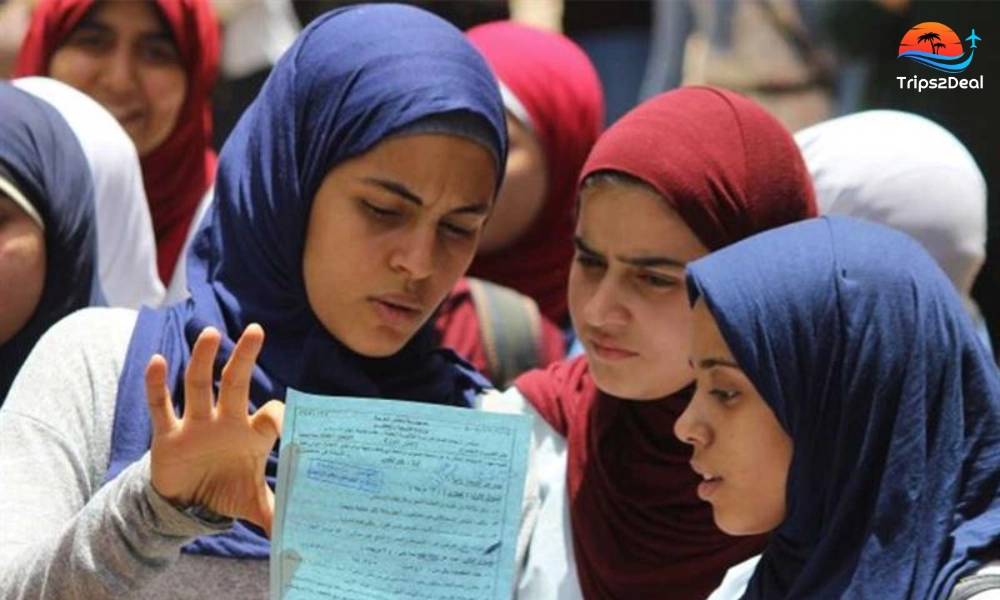Blogs

Understanding Egypt Education Stages: From Preschool to Higher Education
From preschool to higher Education, the different stages of Egypt’s Education system will be examined in this article, along with its structure, challenges and ongoing improvements.
Overview of Education System in Egypt:
The Ministry of Education and Technical Education (MOETE) is the main organization which handles almost every aspect of Egypt’s Education System. Significant modifications have been made in recent years to enhance student participation and align the education system with international standards.
Preschool Education in Egypt (4-5 Ages):
Although voluntary, preschool education provides a vital foundation for kids' future learning. Students are prepared for primary school during the two years of kindergarten, known as KG1 and KG2. There are both public and private preschools in Egypt, and private schools provide education in foreign languages such as French and English.
The government has also been encouraging the expansion of preschool facilities. Basic Arabic, math, art and music are primary subjects.
Primary Education (6-12 Ages):
In Egypt, primary school education is necessary and in public schools, it is free. It consists of 6 years from Grade 1st to Grade 6th. The goal is to give students a strong basis in fundamental disciplines. English is introduced as a second language from 1st Grade while, Arabic remains the primary language of teaching. Science, English, Mathematics, religion and social studies make up the curriculum.
Depending on the religious background of a kid, the government also emphasizes Christian and Islamic studies.

Preparatory Education (12-15 Ages):
Students proceed to three years of preparatory education (Grades 7-9) after the completion of primary school. During this transitional phase, students develop more advanced skills for secondary school.
The curriculum broadens during the preparatory phase, including subjects like advanced mathematics, computer science and foreign languages. Students take the Thanaweya Amma exam at the end of this phase to find out if they can proceed to technical or general secondary education. Enhancing digital literacy and modernizing the curriculum are recent goals of new education reforms.
Secondary Education in Egypt (15-18 Ages):
General Secondary Education and Technical and Vocational Education are the two main programs of secondary education in Egypt.
General Secondary Education (Thanaweya Amma)
Because final exam scores directly influence students’ chances of getting into universities, Thanaweya Amma route is extremely competitive. Thanaweya Amma is a national exam. Depending on their future career objectives, students in this track choose between streams of mathematics, science or arts. In the last year, students take national standardized tests which are crucial since they determine where they will be placed in universities.

Technical and Vocational Education:
It provides an alternative to general secondary education. With practical training in fields including agriculture, business, tourism, and engineering, this course aims to prepare students for the workforce.
- Depending on specialization its duration is 3 to 5 years.
- Its goal is to reduce Egypt’s youth unemployment rate.
Higher Education in Egypt:
Higher education is an important factor in the development of economy and society of Egypt. Cairo University, Ain Shams University, and the American University in Cairo (AUC) are globally renowned establishments in Egypt.
a. Public Universities
Numerous public universities in Egypt provide students with free and inexpensive education. Graduate and undergraduate degrees in disciplines like humanities, engineering, business and medicine are offered by these universities. To get admission in prestigious programs, students must achieve good grades in exams.
b. International institutions and Private Universities
Private universities such as German University in Cairo (GUC) and AUC adhere to international education standards. Students who are looking for modern courses and cutting-edge facilities are drawn to these institutions to improve employment opportunities.
c. Technical Institute and Colleges
Apart from universities, Egypt has numerous technical institutes that offer 2 and 3-years diploma programs in subjects like engineering, computer science and business as well. The goal of this institution is to satisfy the country’s growing demand for middle-level workers.



